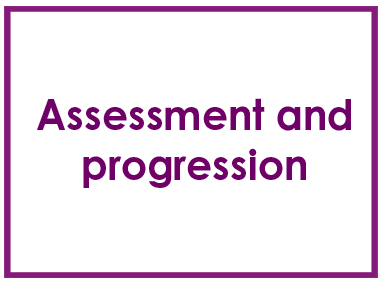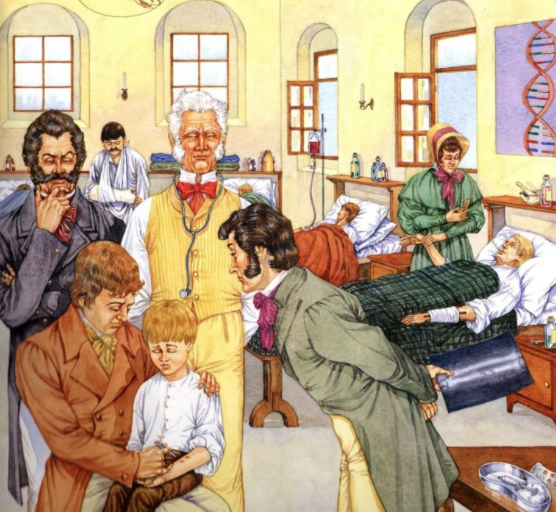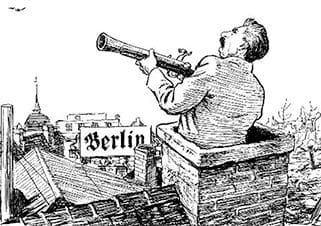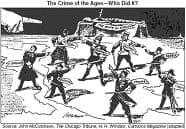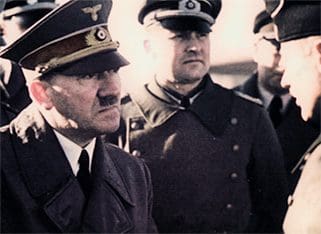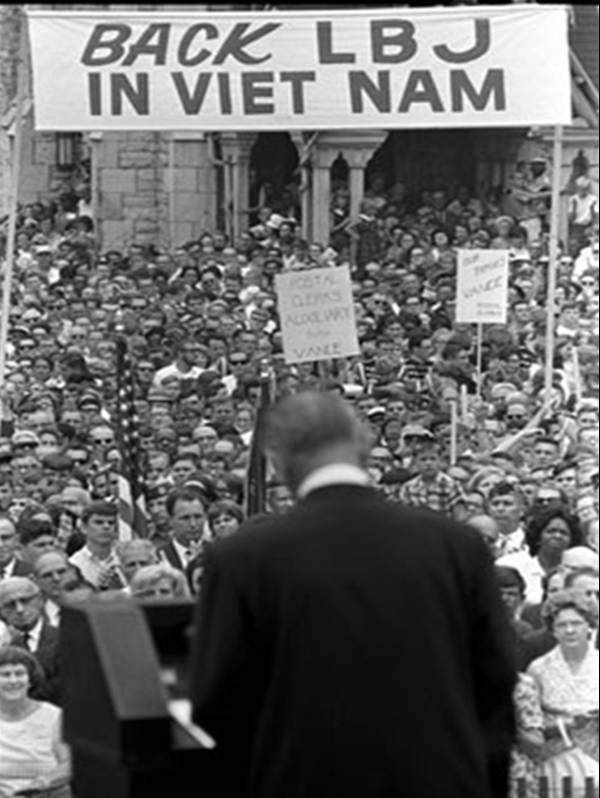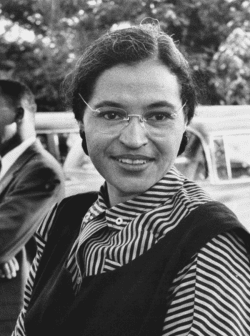
This section is included mainly to help teaching of the new OCR’s History Modern World unit entitled A New Age 1948-2005 which deals with terrorism and the Iraq war. Centres who have used terrorism coursework for SHP in the past might also find something of interest here.
Resources
Iraq
As you would expect, the best starting point would be Ben Walsh’s GCSE new book published by Hodder Education along with the Teachers’ Resource Book and the accompanying CD of interactive ICT activities. You can read an extended extract from the Teachers’ Resource Book here.
The following US site promises to be a really useful resource for those of you teaching the Iraq war for the first time to the new OCR GCSE specification.
You have a talking head presenter, who uses clear images projected behind him as well as key summary points appearing to the right of the screen. The three main headings he talks to are: the background to the conflict; details of the regional differences between Kurds, Sunis and Shiites, and the Powerplays (ugh, I did warn you it was American). Each section is short and to the point
The BBC site has some interesting maps and graphs to show the depth of fatalities from the start of the war.
The Chilcot enquiry 24.11.09
No doubt you will be following with great interest the evidence being presented to the Chilcot enquiry which opens today. What is exciting most attention at the moment is the composition of the panel. Without a senior judge, or indeed any barrister capable of cross-examination among them, how can they possibly reach a decision about the legality of going to war? Interviews with Blair are unlikely to get far below the surface unless he is subjected to penetrating questioning. With Chilcot seen as an establishment figure, criticised for the lightness of touch when cross-examining witnesses for the Hutton enquiry, many are doubting how hard-hitting this report will be. None of the panel members has spoken out strongly against the war. The fact that the Tories voted in favour of the war means that the opposition is unlikely to be as vociferous in its questioning as is customary on these occasions.
The other main issue relates to the questions that will be investigated. As you teach this section of the OCR course, it would be a good activity to ask students to consider what the top 5 questions might be. Here is the Guardian’s list from 24.11.09
1. What assurances did Tony Blair give George Bush about Britain’s involvement in the war with Iraq?
2. Was Tony Blair warned by Lord Goldsmith, the attorney general, and Jack Straw the foreign secretary, that regime change was not a lawful justification for invasion? And what happened between 7 March and 17 March 2003 to make Goldsmith change his views about the legality of the invasion?
3. Why did the intelligence agencies allow themselves to be used? (Not sure I’d use this one)
4. Did the government delay military preparations?
5. What plans were made for Iraq after the invasion?
As you can see, these are not the only, nor indeed the best, 5 questions that could be asked. Students might be more direct: Did Blair lie to parliament? Was the war illegal?
Michael Evans The Times Defence editor thought that one of the critical questions ought to be whether any Cabinet ministers challenged the legal advice that led to Tony Blair’s decision to send 45,000 troops to join the US-led invasion. He might also ask if the Cabinet was given all the information available. Professor Peter Hennessy claims they were given a shrivelled version of the Attorney-General’s legal advice. He is arguing strongly that Chilcot be given access to the minutes of ALL the Cabinet meetings, including the two that Jack Straw the Justice Secretary insisted stay secret!
It is interesting to note that the Netherlands government is also carrying out its own enquiry, no doubt because they felt persuaded by Britain’s position on the legality of the war to support the invasion.
Teaching about 9/11
Teaching about 9/11: the Institute of London’s 9/11 Education programme.
At last we have some high quality web-based learning materials. Thanks to the likes of Jamie Byrom, Michael Riley, Jerome Freeman and Alison Kitson, you can now set up some really helpful enquiries which students, across the ability range can access. Split into 3 enquiries, the history section of the site offers some really high-quality material.
The first enquiry: What made 9/11 attacks so shocking? This opening enquiry builds knowledge of what actually happened on 9/11, how different people were affected and what issues are raised by the attacks. There are some interesting activities here such as: Here is a possible list of experts that you could invite to a discussion about 9/11 on the day it happened. Who would you select and why? There is a detailed teaching programme subdivided as follows: 1. What happened when on 9/11 (using artefacts and an interactive timeline) 2. How did the shockwaves spread? (lots of engaging weblinks) 3. What was so different about the 9/11 attacks? 4. What questions were raised by 9/11 and who should answer them?
Enquiry question 2: Out of the blue: when and why did 9/11 begin? Lots of good advice here and activities relating to the causes of terrorism. One of the simpler ones is probably the tree roots diagram. My favourite however, is the one which asks students to prove, using specific pieces of evidence, that the terrorist attacks were not ‘mindless’.
Terrorism
In terms of websites there are some real crackers.
For the IRA I would recommend Ireland in schools which is pretty comprehensive on the role of terrorism in Northern Ireland. Excellent weblinks have now been complemented by PowerPoint presentations. This site has long been a favourite of SHP colleagues. You will want to have a direct link to it on your VLE.
Because you will be dealing with a number of controversial issues here, you might like have a quick look through the useful advice offered by Oxfam
Some helpful websites that bring much-needed variety of perspective to this key questionWhat is Terrorism? can be found at : The Red Cross site and the Association for Teaching Citizenship.

